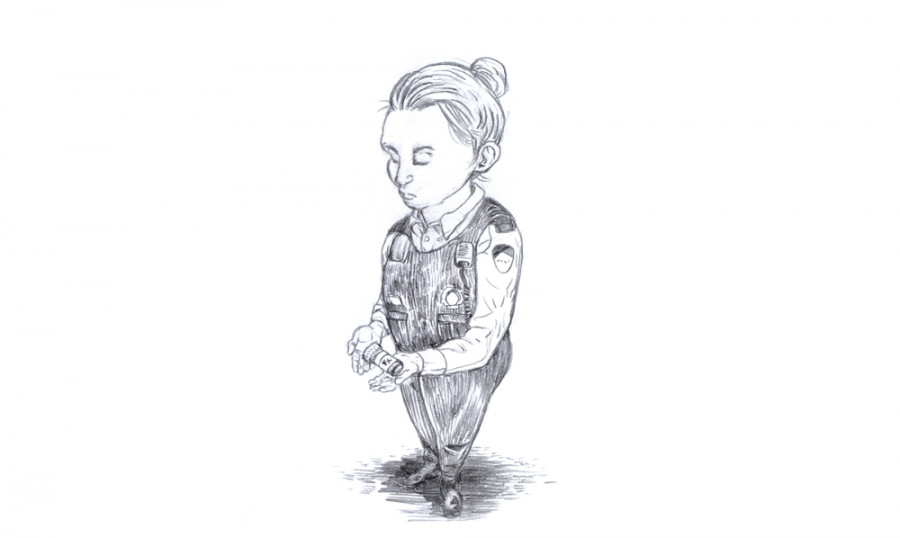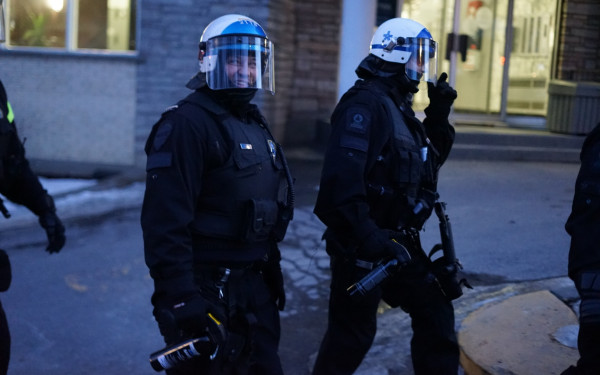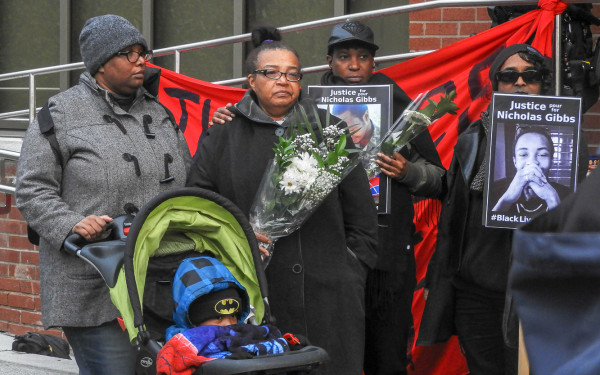Editorial: The SPVM Needs Better Training and Accountability
Last year, the Service de police de la Ville de Montréal introduced the Équipe de soutien aux urgences psychosociales, their pilot program to address the ways in which officers handle individuals in distress or who suffer from mental health issues.
The program, which in English translates to the Psychosocial Emergency Support Team, partners police officers with professionals from the Jeanne-Mance branch of the Centre for Health and Social Services.
Past incidents, like the 2012 fatal shooting of mentally ill Farshad Mohammadi in the Bonaventure metro station, strongly indicate a need for greater care on the part of police. To their credit, the SPVM acknowledged in their annual report that year that the death of Mohammadi reiterated the need for collaboration with outside parties in instances involving individuals with mental illnesses.
While the ESUP initiative is an example of such outside involvement, it also demonstrates the utter lack of proper attention that was given to dealing with the mentally ill prior to its introduction. And while involving medical professionals in calls where mental illness is a factor makes sense, individual officers also need to be better trained in how to deal with the mentally ill.
The SPVM claims that over the next three years officers will be receiving training on how to handle those with psychiatric conditions, but the question remains—why wasn’t this done sooner? It’s clear that better training should have been implemented long before the beginning of this year, and it’s shocking that it took this long.
The SPVM fields 33,000 phone calls per year—that’s 90 calls a day—that tie into issues of mental illness, and mental illness has been a factor in a number of deaths resulting from police action, many of which have not resulted in proper disciplinary action for involved parties.
The SPVM’s plan is promising on paper, but without greater accountability from the much-scandalized police force, there is no guarantee that significant changes will come out of it.
Every year a vigil is held for victims of police violence. Family members and friends of the deceased or injured gather to remind the public that police brutality, especially towards racial minorities or individuals with mental health issues, is a serious concern in Montreal, as well as in the province as a whole. An issue at the centre of this year’s vigil is the call for greater accountability in instances of violence at the hands of the police.
The well-documented history of officers being exonerated following clear instances of brutality resulting in death, like the 1991 death of Marcellus François, who was shot and killed by a member of the SWAT team while he was sitting in his car, makes it clear that, at least in Quebec, the police should not be investigating the police, even if they fall within different jurisdictions.
In the case of François, SWAT team leader Michel Tremblay was exonerated, and two other officers involved were given short suspensions for misconduct, because apparently that’s what being involved in a case of mistaken identity that results in death is called.
Since 1987 over 60 individuals have died at the hands of the police. Eleven of those deaths have come in the last five years, ranging from individuals in their 80s to Paul McKinnon, Marc-Antoine Bernier and Melissa Murat, all three of whom were only 14 at the time of their death.
In the case of McKinnon, the officer who struck and killed him with his car was sentenced to a mere 45 days for dangerous driving. A teenager died, and Officer Serge Markovic was given what essentially amounts to a slap on the wrist.
Corruption has taken centre stage in this year’s municipal elections, but it’s imperative that the mentally ill and racial minorities are not forgotten. There is no reason for more violence against individuals who are already in a disadvantaged state due to a stigmatized condition beyond their control, and it’s high time that those who hold power learn how to keep it in check, and that when they fail to control themselves they are held responsible for their actions.





1_600_375_90_s_c1.jpg)
